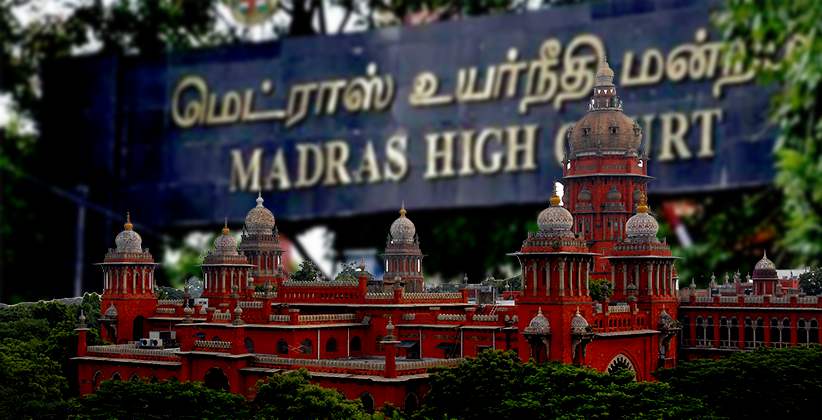“Yet another run-of-the mill case,” Madras High Court Commutes Capital Punishment to Life Imprisonment in a Murder Case

The Madras High Court in a recent judgment commuted to life imprisonment, the death sentence imposed on a former professor of business administration for having murdered his wife at an apartment in December, 2012.
A division bench of Justice P. N. Prakash and Justice R. N. Manjula during the course of hearing found that the convict V. Kannan (50 years of age) was guilty of having committed the ghastly crime but did not find it to be a rarest of rare case warranting capital punishment.
“Despite all the above, we still feel that this is yet another run-of-the mill case and not a case falling under the category of "rarest of rare cases" for sending Kannan to the gallows, for, it has not been demonstrated to us that Kannan is addicted to crime and that he is a menace to society, thereby ruling out any possibility of reformation.”
It must be noted that the accused had smashed the head of his wife with a mortar and then slit her throat with a kitchen knife following a domestic quarrel. The convict had killed his wife when their 13-year-old daughter was asleep. Thereafter, he called his father in Salem and a family friend Rajagopal, who in turn, took the assistance of his tenants to reach the spot and on the way, they informed the police.
The trial court, vide judgment and order dated Mar 3, had convicted Kannan, the accused of the offence under Section 302 IPC and imposed death sentence on him. Since death sentence had been imposed on him, the case was sent to the present bench under Section 366 CrPC for confirmation of the death sentence. Thereby, challenging his conviction and sentence, Kannan had filed the present case.
The bench cited the Supreme Court judgment in the landmark case of the Bachan Singh vs State of Punjab and opined that,
“Coming to the question of sentence, we are convinced that this case does not come within the category of “rarest of rare cases” for awarding capital punishment, by applying the principles laid down by the Supreme Court.”
Bench also noted that, “Kannan was initially repentant and that is why, he told Rajagopal (P.W.2) that he is going to surrender to the police. He did not run away from the place of occurrence after the incident but stayed put. With passage of time, the remorse in him faded and the desire to avoid pain by undergoing the punishment prescribed by law must have prompted him to shift the blame on Rajagopal.”
The bench therefore, passed common orders on a statutory reference made by the trial court as well as an independent criminal appeal preferred by the convict.
“In the facts and circumstances of the case, interests of justice will be subserved if the death sentence imposed on Kannan is reduced to imprisonment for life, with a fine of Rs.5,000/- in default to undergo three months simple imprisonment and it is ordered accordingly.”
The bench noted that, during the course of trial, the convict’s father turned hostile. The convict, in turn, accused Rajagopal of having murdered his wife when she resisted his sexual overtures. Thereby, holding that the trial court had rejected such accusation, the Bench said the testimony of the convict’s daughter went directly against him.
Case title – Kannan v State
